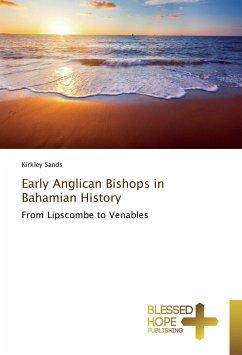In 1807, the British Government abolished Britain's transatlantic slave trade, thanks to the untiring efforts of Evangelic Christians and other Humanitarians in the United Kingdom. This action was but the initial step in a series of steps eventuating in the emancipation of all slaves in the Anglophone Caribbean. Anticipating the said emancipation, the British Government and the Church of England embarked upon a ten-year period of Religious Education, effective 1824, as a preparation for slave emancipation and social integration under Church of England Episcopal Oversight in the British Caribbean. Two Episcopal Sees were, therefore, erected - one in Jamaica with responsibility for the Bahamas and Belize and the other in Barbados with responsibility for the Windward Islands and Guyana. This book examines the role of the Anglican Church in Bahamian History during the period 1670-1870.
Bitte wählen Sie Ihr Anliegen aus.
Rechnungen
Retourenschein anfordern
Bestellstatus
Storno








